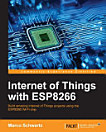Multiscalar Processors
Manoj Franklin
Dec 2012 · The Springer International Series in Engineering and Computer Science Book 718 · Springer Science & Business Media
eBook
237
Pages
reportRatings and reviews aren’t verified Learn more
About this eBook
Research on the Multiscalar execution model was introduced in the early 1990's, recognizing the inadequacies of relying entirely on Instruction Level Parallelism (ILP). The goal was to augment the parallelism bridgehead established by ILP with the ground forces of Thread-Level Parallelism (TLP), a coarser form of parallelism. Many studies on parallelism indeed confirm the significant performance potential of executing multiple threads of a program in parallel. The difficulties that have been plaguing the parallelization of ordinary, non-numeric programs for decades have been complex flows of control and ambiguous data dependences through memory. The breakthrough provided by the Multiscalar execution model was the use of speculative threads along with data speculation. Speculative threads allow sequential programs to be parallelized, and data speculation allow threads to be executed in parallel even if they are likely to have data dependences.
Multiscalar Processors presents a comprehensive treatment of the basic principles of Multiscalar execution, and advanced techniques for implementing the Multiscalar concepts. Special emphasis is placed on highlighting the major challenges involved in Multiscalar processing. This book is organized into nine chapters, and provides an excellent synopsis of a large body of research carried out on multiscalar processors in the last decade. It starts with technology trends that provide an impetus to the development of multiscalar processors and shape the development of future processors. The work ends with a review of the recent developments related to multiscalar processors.
Multiscalar Processors is designed to meet the needs of a professional audience composed of designers and programmers of next-generation processors and researchers in computer architecture and engineering. This book is also suitable as a secondary text for graduate level students in computer science and engineering.
Multiscalar Processors presents a comprehensive treatment of the basic principles of Multiscalar execution, and advanced techniques for implementing the Multiscalar concepts. Special emphasis is placed on highlighting the major challenges involved in Multiscalar processing. This book is organized into nine chapters, and provides an excellent synopsis of a large body of research carried out on multiscalar processors in the last decade. It starts with technology trends that provide an impetus to the development of multiscalar processors and shape the development of future processors. The work ends with a review of the recent developments related to multiscalar processors.
Multiscalar Processors is designed to meet the needs of a professional audience composed of designers and programmers of next-generation processors and researchers in computer architecture and engineering. This book is also suitable as a secondary text for graduate level students in computer science and engineering.
Rate this eBook
Tell us what you think.
Reading information
Smartphones and tablets
Install the Google Play Books app for Android and iPad/iPhone. It syncs automatically with your account and allows you to read online or offline wherever you are.
Laptops and computers
You can listen to audiobooks purchased on Google Play using your computer's web browser.
eReaders and other devices
To read on e-ink devices like Kobo eReaders, you'll need to download a file and transfer it to your device. Follow the detailed Help Centre instructions to transfer the files to supported eReaders.








